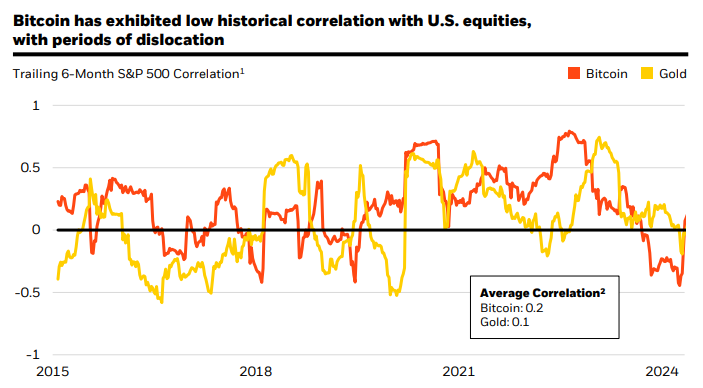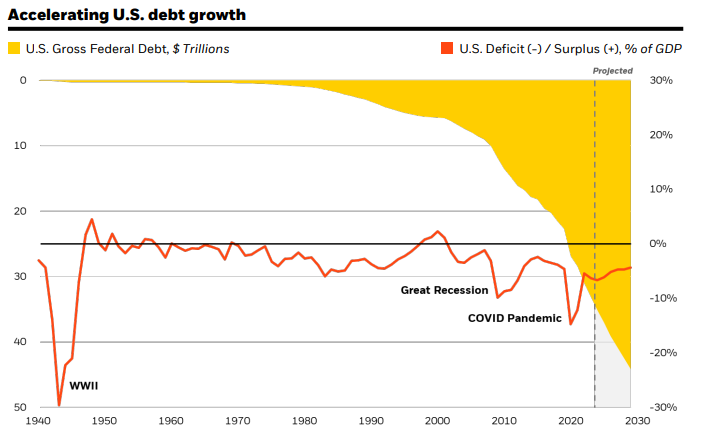This year, BlackRock and other US financial giants have begun offering crypto-related investment products. What is often lacking, however, is education about the sector. In response, BlackRock has compiled a nine-page report outlining the pillars of bitcoin's unique investment profile.
The report, titled "Bitcoin: A Unique Diversifier" aims to explain why investors should be interested in the digital asset at all. According to BlackRock, the key argument is that bitcoin's decoupling from traditional risk and return drivers gives it an exceptionally attractive profile. In a world of expansive monetary policy, bitcoin's growth seems almost predetermined.
Bitcoin: A stand-alone digital asset
BlackRock begins the report with a brief history of bitcoin. Launched in 2009, bitcoin was the first Internet-native currency. Its technological innovation was the creation of money that was digital, global, scarce, decentralized and permissionless. These attributes allowed Bitcoin to solve centuries-old problems faced by other forms of currency:
- Bitcoin's 21 million unit limit protects it from devaluation.
- Its global, digital nature allows worldwide transfers at minimal cost, overcoming the friction of moving value across borders.
- Its decentralized, permissionless nature makes bitcoin the world's first truly open monetary system.
While other crypto assets have since built on this breakthrough, Bitcoin has firmly established itself as the leader in the space. It remains the only digital asset with credible scarcity, giving it a unique position even within the crypto universe. More on this topic can be researched in the CVJ.CH Academy.
Low correlation to other asset classes
Because of these unique characteristics, bitcoin has little dependence on other macroeconomic variables. This is evidenced by its low long-term correlation to stocks and other "risk assets". While there have been brief periods when Bitcoin's correlation has spiked - particularly during sudden changes in real interest rates or US dollar liquidity - these episodes have been short-lived and have not been indicative of a long-term, statistically significant correlation.

Bitcoin's decentralized, non-state-backed nature makes it independent of traditional counterparties and immune to centralized systems, the fortunes of a single country, or specific macroeconomic risks such as banking crises, sovereign debt crises, and geopolitical disruptions.
Focus on US debt

Amid growing concerns about US federal deficits and debt levels, the attractiveness of potential alternative reserve assets such as bitcoin as a hedge has increased. This dynamic is echoed in other countries with significant debt levels, which helps explain the recent rise in institutional interest in bitcoin.Nevertheless, BlackRock concludes that bitcoin remains a "risky" asset. As an emerging technology in the early stages of development as a global payment system and store of value, bitcoin presents unique risks. However, these risks apply only to bitcoin and not to traditional asset classes. From a portfolio perspective, a moderate allocation to bitcoin could have a diversifying effect.








